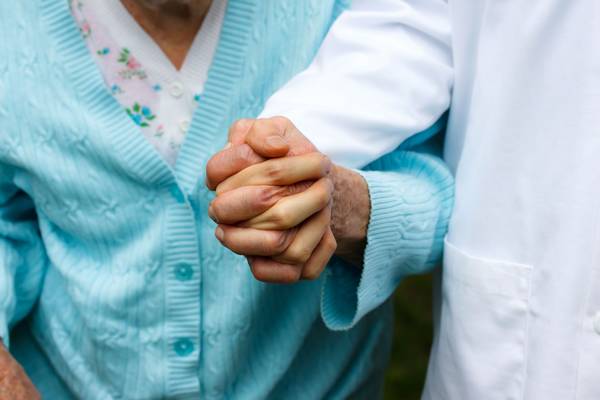New Study: How Fear Drives People to Choose Death
 CBN News 10 June 2017
CBN News 10 June 2017
Family First Comment: Polls that support euthanasia are based on ‘intolerable pain’ but as this research – one of many – shows, that’s not the motivating factor for wanting assisted suicide…
“Those who received (assisted suicide) tended to be white and relatively affluent and indicated that loss of autonomy was the primary reason for their request,” the report states. “Other common reasons included the wish to avoid burdening others or losing dignity and the intolerability of not being able to enjoy one’s life. Few patients cited inadequate control of pain or other symptoms.”
www.rejectassistedsuicide.org.nz
Patients who choose euthanasia are most often motivated by the fear of losing control or being a burden to others, not pain, according to a new study.
The Toronto-based study published in the New England Journal of Medicine comes after Canada legalized euthanasia last summer. Since then, hundreds have reportedly opted for Medical Assistance in Dying (MAID).
The study analyzed patients from four hospitals participating in MAID and concluded fear of losing control is a leading factor when people want to die.
“Those who received MAID tended to be white and relatively affluent and indicated that loss of autonomy was the primary reason for their request,” the report states. “Other common reasons included the wish to avoid burdening others or losing dignity and the intolerability of not being able to enjoy one’s life. Few patients cited inadequate control of pain or other symptoms.”
Researcher Madeline Li told The Washington Post that the results of the study shocked her.
“They are mostly educated and affluent—people who are used to being successful and in control of their lives, and it’s how they want their death to be,” Li said. She used the example of a patient who was once a marathon runner before being bedridden from cancer. “That was not how she saw her identity,” Li said.
READ MORE: http://www1.cbn.com/cbnnews/health/2017/june/how-fear-drives-people-to-choose-death
It’s not pain but ‘existential distress’ that leads people to assisted suicide, study suggests
Washington Post 26 May 2017
A few decades ago, doctor-assisted suicide was considered a fringe idea despite surveys showing many physicians supported the idea under certain circumstances. The face of euthanasia at that time was Jack Kevorkian, a Michigan pathologist nicknamed “Dr. Death.” By his own admission, he helped 130 people end their lives. He was convicted of homicide and served eight years in prison.
While doctor-assisted suicide remains a polarizing issue, some countries and states have begun to accept it. Belgium, the Netherlands, Luxembourg and Switzerland have legalized voluntary euthanasia. In 2016, Canada legalized “medically assisted death.” Australia, France, South Africa and the United Kingdom are considering similar measures.
In the United States in 2014, the story of Brittany Maynard — a 29-year-old California woman with a brain tumor who wanted to end her life but had to travel to Oregon to do so — led to an outpouring of support and sympathy on social media. Six states, including California, now allow some form of medical aid in dying.
Allowing assisted dying to come into the open has helped us gain insights about one of the most fundamental questions of our existence: Where do humans draw the line between choosing life and choosing death?
But a study released Wednesday in the New England Journal of Medicine suggests the answers may be surprising: The reasons patients gave for wanting to end their lives had more to do with psychological suffering than physical suffering.
READ MORE: https://www.washingtonpost.com/news/to-your-health/wp/2017/05/24/its-not-pain-but-existential-distress-that-leads-people-to-assisted-suicide-study-suggests/?utm_term=.4a1e5b3dea2a







